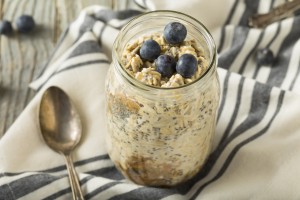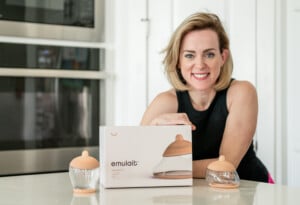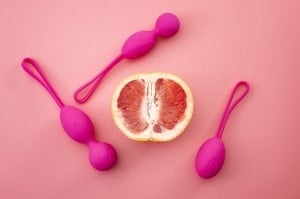As an International Board Certified Lactation Consultant (IBCLC), I would love to have an herbal remedy I could give women to increase their breastmilk supply. As humans, the desire for a quick fix (especially when we’re exhausted with a newborn!) is something we gravitate towards. Even if we have skepticism, we’re willing to try anything.
You have probably seen people online suggest trying a certain tea, lactation cookie, supplement, or tincture to boost their breast milk supply. However, these herbal remedies are not evidence-based and have possible side effects. They attempt to fix a symptom without understanding why the mother is experiencing a low breast milk supply.
What are galactagogues?
Firstly, let’s cover galactagogues. These are substances that increase breastmilk supply. They can be prescription-based, such as Motilium, or herbal galactagogues found in capsule form, teas, and cookies. The most commonly used herbs and foods to increase supply include Fenugreek, Blessed Thistle, Nettle Leaf, Oatmeal, Brewer’s Yeast, and beer.
Some of these have been used for centuries, and many anecdotal reports support their efficacy. However, there is limited research on these foods, and the available research is contradictory. For example, a study was done in 2011 looking at the effectiveness of Fenugreek tea, and a study from 2013 looking at the effectiveness of Fenugreek capsules yielded different results.1,2 As Lactmed summarises Fenugreek, “[e]vidence for a galactagogue effect is mostly anecdotal. A limited number of published low to moderate quality studies have found mixed results for a galactagogue effect for Fenugreek.”3
Should I take Fenugreek to boost breastmilk supply?
Don’t get me wrong. There is an argument for trying something women have been using to increase their milk supply for centuries. However, it’s important to understand that it’s not evidence-based. Fenugreek has possible risks, including side effects such as nausea, vomiting, diarrhea, and flatulence.3 Caution should also be taken with Fenugreek when giving high doses to women with diabetes or those taking Warfarin or other blood thinners.
Other substances such as Blessed Thistle, oatmeal, Brewer’s yeast, and beer have no evidence-based reports to support their use for increasing supply. If you take an herbal supplement, working with an IBCLC and your doctor or healthcare professional is important. They can help ensure that it’s bringing improvements and not causing any side effects.
What about my friend who said these herbs helped her?
So, what about the women who claim Fenugreek, Blessed Thistle, and the cookies they ate increased their supply? Women who have had a noticeable increase would have already had a well-established supply. They may have just needed a bit of a boost. But these herbs are unlikely to help someone with a truly low supply. This type of boost could also be reached by using evidence-based methods such as more frequent (and effective) milk removal.
For women with ongoing, chronic low-supply issues, herbal supplements, teas, and lactation cookies will probably do nothing. It can be extremely frustrating and deflating for women in this position who are continually being told to take a herb or eat a cookie to increase supply when the answer may not be in a supplement. Instead, she needs a thorough investigation into WHY she has a low supply. So, how can this investigation be done?
There are four different possibilities as to why a woman has a low supply:
- She has a physiological reason she cannot make enough milk (i.e., insufficient glandular tissue, hormonal reasons, etc.).
- Her baby cannot effectively and efficiently remove enough milk for her to continue to make enough.
- There was a reason the baby could not frequently breastfeed to remove the milk (such as separation following birth or illness, etc.).
- A combination of the above.
Your best bet is to consult with an IBCLC.
You need your body to have the ability to make enough milk. And your baby needs to be able to remove enough milk to make the required amount to breastfeed your baby exclusively. If you have one or both of these things going on, taking supplements, herbs, cookies, and teas will unlikely make any difference. I am not telling you this to make you feel hopeless! Quite the opposite! It’s meant to give you hope and clarity about putting yourself in the best position to make as much milk as possible.
This can be done with a thorough assessment of an IBCLC. She can help assess if you have anything in your history to indicate that you might have trouble making enough milk regardless of how much is removed from your breasts regularly. She can also assess your baby’s ability to remove your milk effectively and efficiently. If you have pain or discomfort, or your baby takes a long time to breastfeed (over 45-60 minutes every or most feeds), is unsettled, or comes on and off the breast, it is likely that your baby is having difficulty with the latch and will need an oral assessment.
Summary
If you’d like to try herbal supplements or lactation cookies, there are anecdotal reports from women that show they can be effective. However, for women with true, ongoing, low breast milk supply, these supplements are unlikely to make any significant difference to your milk supply. Before reaching for the lactation teas and cookies, reach for your phone and seek some help. Get to the bottom of why you are experiencing low supply. And form a plan for moving forward. There are possible solutions to every breastfeeding challenge! As long as you work with an IBCLC or doctor, trying these supplements isn’t necessarily harmful, but they may not help. But be sure to investigate any underlying cause for low breast milk supply first.


































